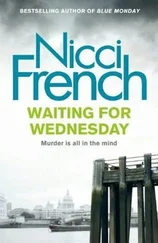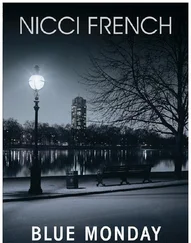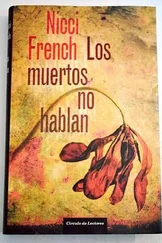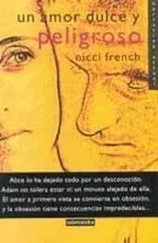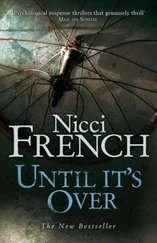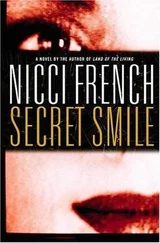‘This is the bit of the walk I hate,’ said Frieda. ‘Suddenly you leave the village and you’re right in the West End. The river became the boundary between two grand estates and all that’s left of it is awful big buildings, hotels, offices, garages. Robert Poole understood everybody but he didn’t understand Tessa and Harry Welles. He couldn’t talk his way out of that one. They just wanted his money. It only took one finger for him to give them the details.’
‘Nice.’
‘But they got a taste for it. It’s funny …’ Frieda paused. ‘You’re sure you don’t want to sleep?’
Again she felt his touch.
‘I wouldn’t want to sleep tonight, even if I could.’
‘Well,’ she continued, ‘there’s a difference between doing something and being something but they merge into each other. I mean, you play the piano a bit, and then more and more, and at some point you become a pianist. That’s who you are. That’s your identity. They killed Robert Poole just for the money. They got trapped into killing that poor woman, Janet Ferris, and at that point they thought, We can do this. It stopped being just about the money and became about power. They got off on it. That’s why they got involved with the investigation. It was about control, about showing they were better than us. Harry took it even further. If he could get to me, if he could fuck me, that would be the real demonstration of his control.’
There was a silence for a time.
‘You were on to him?’ said Sandy. ‘It wasn’t going to happen, was it?’
‘He was never my type. The one who really interested me was Robert Poole.’
‘Is he your type?’
‘No, no,’ said Frieda. ‘What haunts me is that he was a bit like me. Or I’m a bit like him. But he was better than me. At least, he was too good for himself. He was just a conman. He only needed to steal their money, but he had too much empathy. He was too interesting. It caught up with him.’
‘You couldn’t save him,’ said Sandy. ‘His death was like, I don’t know, the stipulation, the basis for it all. Anyway, where are we now?’
‘It gets better,’ said Frieda. ‘We cross Piccadilly and we’re at Green Park. You look across it and you can almost see the riverbed, where it ought to be. We walk through the park, except that it’s probably blocked by the preparations for the wedding.’
‘What wedding?’
‘You know, the wedding. The royal wedding.’
‘Oh, that.’
‘But we make our way across, then round the edge of Buckingham Palace. The actual river flows under the palace. When I’m dictator and all the hidden rivers of London are exposed again, the palace will have to be demolished …’
‘A small price to pay.’
‘And then we get to Victoria, which is even worse than the bit around Grosvenor Square. It’s like a Fascist traffic island in the middle of a motorway and then a horrible street that’s like the back of a hotel, where the deliveries are made and the rubbish taken out. But then you walk down Aylesford Street to the river and that’s nice.’
‘Do you finally get to see the Tyburn?’
‘You’re not meant to,’ said Frieda. ‘It flows in a pipe under a house on the Embankment. But I once went round the side, climbed over the railing and down some metal steps on to the mud by the river at low tide. I sat by the outlet. After all that it was just a dribble. Hardly worth the trouble.’
‘I can’t believe it,’ said Sandy. ‘You remember all that.’
‘I do the walks in my head sometimes. To try to get to sleep. It doesn’t work.’
‘You should be a cabby,’ said Sandy.
‘Thanks.’
‘No, I’m serious.’
‘I’m serious, too.’
‘But don’t they have to do that … what’s it called? The Knowledge. The examiner asks them how to get from, I don’t know, Banbury Cross to the Emirates Stadium and they have to describe it street by street.’
‘I don’t think Banbury Cross is a real place.’
‘But you can do that. And they have special brains, don’t they, cabbies?’
‘The ones I meet don’t seem to have particularly special brains.’
‘But they do,’ said Sandy.
‘They have an enlargement in their mid-posterior hippocampus,’ said Frieda, ‘due to the enhanced neural activity in the region. And we’re finished. We can go home.’
‘That’s my kind of walk,’ said Sandy. ‘The kind you don’t need to get out of bed for. And you’re done.’
‘Except that poor Beth Kersey and Dean Reeve are still out there. We’re warm in bed and they’re out in the world.’
‘They’re not your problem,’ said Sandy. ‘They’re being dealt with.’
During the next morning, Frieda was perfectly able to play the role of a therapist. She leaned forward in her chair, she asked appropriate questions, she took a tissue from the box and handed it to a weeping woman. She rearranged appointments. At the end of each session she took accurate notes and made brief plans for the future.
But all the time her mind was elsewhere. She had the feeling, which almost took her over, that something somewhere was wrong. Her first thought was that it was within her own mind. Working with Karlsson and the police had been a sort of drug to her, and now that it had been snatched away from her, she was experiencing withdrawal symptoms. Was it all vanity? Was she missing the excitement and the attention? She remembered Thelma Scott, who had come to see her and offered her help, left her card. Frieda thought it might be time to start seeing a therapist again.
And she thought of Sandy. He was in London for work, but it was just a few weeks. In a month he would be back in New Jersey. What, really, were the reasons that had made it seem impossible for her to go with him? ‘We’re all afraid to acknowledge the freedom we really have.’ Someone had said that to her once. Was it Reuben? Or had she read it? Was she afraid to face up to her own freedom?
But mainly she thought of other things. Or, rather, she was aware of them. They were like strange noises outside in the darkness. She didn’t know whether they were calling her or coming for her. She felt an urge that she could hardly define but that was telling her just to get away, to go anywhere. At twelve o’clock, after the last session of the day, she went into the tiny bathroom she had next to the consulting room, poured herself a glass of water and drank it straight down, then another. After, she sat and finished her notes on the session.
She walked slowly back to her house. She didn’t feel hungry. Mainly she felt she needed to lie down, get some sleep. Pushing her front door open, she saw the normal pile of letters. She picked it up. It was mainly junk mail; there was a gas bill, an invitation to a conference and, finally, a letter with no stamp, which must have been delivered by hand. There was nothing written on the envelope except her name in a vaguely familiar hand. Yes, Josef. She wondered why Josef would push a letter through her door instead of coming to see her. Had she been pushing him away? Him, too? Well, yes. She remembered their hasty words at Sasha’s party. There was something he had wanted to tell her and she had rebuffed him. She tore the envelope open and read the letter:
Dear Frieda,
Sorry. You are cross I know. Sorry for that. I try to talk to you. Here is paper from Mrs Orton. She want to burn it. I say I show to you. Sorry. I see you soon maybe.
Your best,
Josef
Frieda looked at Mary Orton’s will. For just a few seconds she stood in furious thought, staring at the wall.
‘Oh, my God,’ she said suddenly, ran through to the living room, found her notebook and flicked through the pages. She found Mary Orton’s number and dialled it. The phone rang ten times, fifteen times. She rang off and just stood in her room for almost a minute, paralysed with indecision. She pushed the notebook into her pocket and ran out of the house. She hailed a taxi in Cavendish Street and gave the driver Mary Orton’s address. He pulled a face.
Читать дальше


